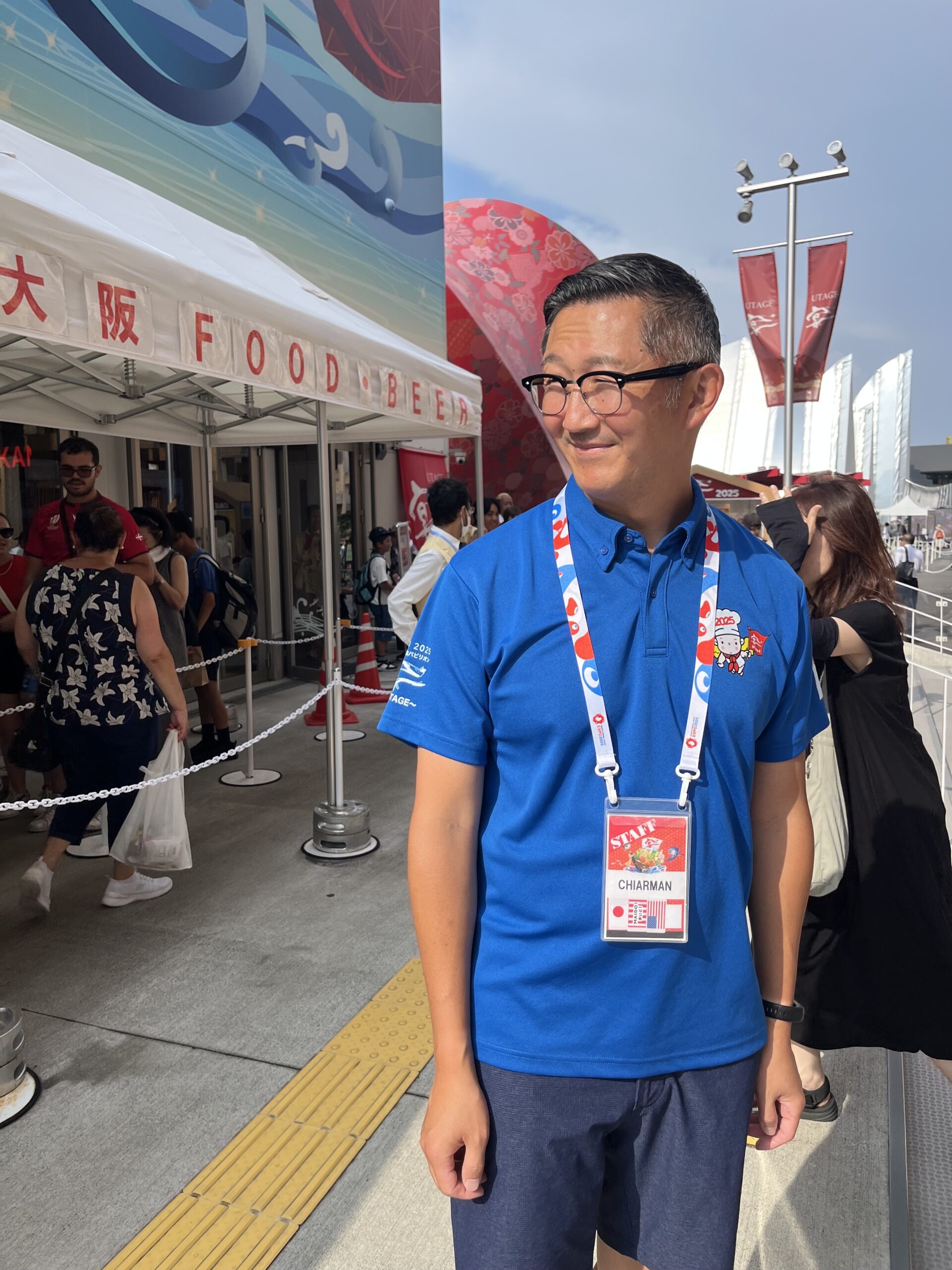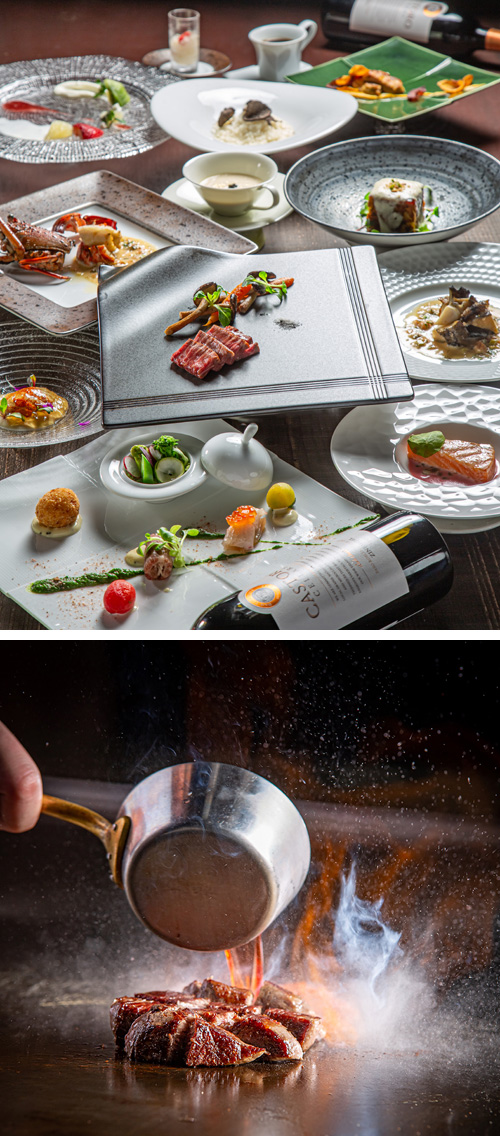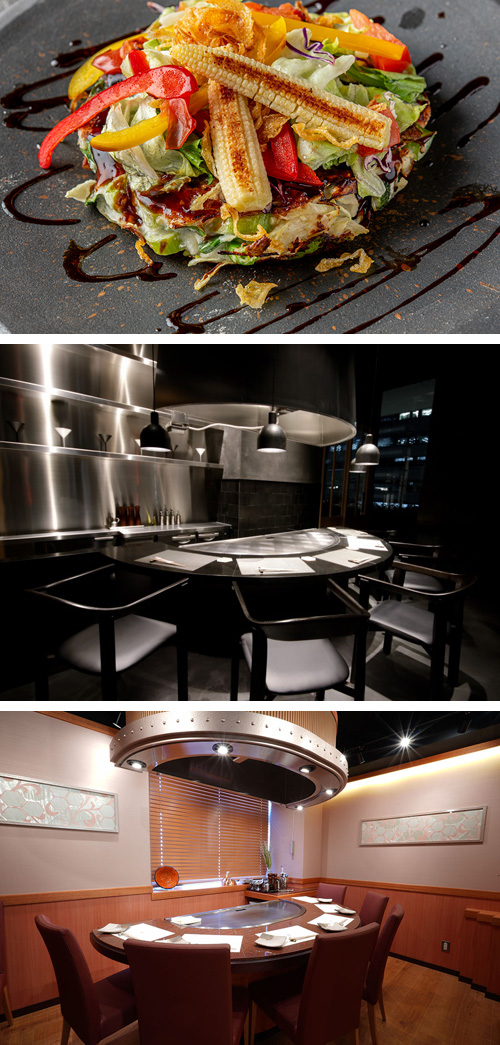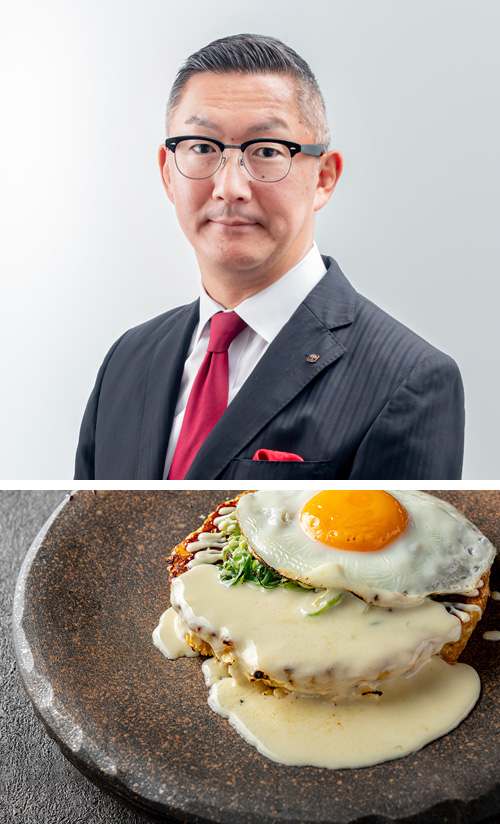
-
CHIBO
Mr. Kanji Nakai, Chairman of the Osaka Restaurant Management Association—which operates the “UTAGE” pavilion at Expo 2025 Osaka, Kansai, Japan—and Representative Director of CHIBO Corporation (now in its 52nd year), shared his insights on Expo 2025 and the challenges facing CHIBO.
Thoughts on Expo 2025

On August 21, 2025, the Osaka Restaurant Management Association, the largest food and beverage organization in Osaka, welcomed a total of 1.4 million visitors. By the end of the Expo, the number of visitors is expected to exceed 2 million. Initially, we faced a mountain of challenges, including whether our organization could truly meet the budget. This is a special edition of our Food Expo, held once every four years. After four years of preparation, Expo 2025 opened on April 13 of this year, and we have been tackling new challenges every day. There are also many joyful moments along the way. Seeing the smiles of visitors enjoying themselves across generations, and hearing international guests say, “Japanese food is amazing! Delicious and fun,” we feel it is highly meaningful that we, as food and beverage professionals from Osaka and across the Kansai region, have had the opportunity to step out of our restaurants and share our cuisine live on an international stage. When we launched the Food Expo in 1985, there were very few food events. Today, there are even festivals dedicated to specific types of cuisine, such as ramen and curry. We are truly grateful to have been able to collaborate with our fellow association members and participate in Expo 2025 together.
The pandemic expanded the possibilities for our food service industry through prepared meals, takeout, and delivery. While the industry as a whole continues to advance in food tech, automation, and robotics, I believe the fundamental core of the food business lies in the “heartfelt connection” with customers, employees, and society. This is what matters most.
The Challenge of Osaka Okonomiyaki CHIBO

During the pandemic, our top priority was protecting our employees’ jobs, no matter what. While diversity remains important, we ensured the employment of every single staff member—including part-time and temporary employees—without a single layoff. In addition, CHIBO has long operated the “Job Parent Project,” a program supporting the employment of former inmates through work rehabilitation. This initiative, started by my father, the Chairman, is part of our CSR efforts. Amid the pandemic, we reflected on what our customers truly valued most, beyond technological advancements. It was the desire to dine out—to connect with friends, family, and loved ones over shared meals, to enjoy casual conversations with our staff. In essence, it was about “human interaction” and providing a “space for emotional healing.” At Expo 2025, we are offering menu items that differ from our usual lineup, and they have proven incredibly popular—even surprising us the most. These include spring roll–style stick-shaped okonomiyaki, pork buns filled with yakisoba, and okonomiyaki–flavored French fries. Moving forward, we plan to introduce entirely new items never before seen at our restaurants. Of course, we also aim to take on the challenge of offering some of these at convenience stores. In Tokyo, we launched our premium brand, “Kohaku,” during the COVID-19 pandemic. Prior to the pandemic, we opened our Muslim-friendly okonomiyaki brand, “CHIBO Diversity,” in Namba. These two initiatives have helped shape CHIBO’s current identity. We continue to advance boldly and unconventionally in areas such as SDGs, technology, and frozen food processing. CHIBO is a company that constantly challenges itself.
The Birth of Muslim-Friendly “CHIBO Diversity” and Premium Brand “Kohaku”

Let me share our Diversity Initiative, which we have been pursuing since around 2013. As you know, approximately 10 million foreign tourists visit Japan each year. Recognizing this, we reflected on how it conflicted with CHIBO’s philosophy of “making all customers happy through enjoying okonomiyaki.” We considered what steps we should take—not only developing okonomiyaki suitable for Muslim customers, but also exploring gluten-free options and foods appropriate for elderly customers with swallowing difficulties. Our diversity initiatives for Muslim customers began in 2018. At first, there were days with no customers, but gradually, over six months to a year, business picked up. However, the restaurant was closed for three years due to the COVID-19 pandemic. Today, it has become a welcoming place for many visitors. We provide facilities for ablution (wudu) and a prayer room, and we also offer vegan and vegetarian menu options. Furthermore, during the pandemic, we launched our premium brand, “Kohaku,” aiming to offer even greater value than our existing high-end brand, “President.” This brand features higher price points, with meals alone costing over JPY 35,000. It includes a resident sommelier and has achieved the top ranking in its category on the restaurant reservation site, Ikyu. We offer a diverse selection of wines to complement the cuisine, meticulously curated with creativity to ensure enjoyment for both Japanese guests and international tourists. Looking ahead, the food and beverage industry will increasingly require an international perspective. We hope that the excitement and experience our customers enjoy at Kohaku in Japan can one day be shared in their own countries as well.
Overseas Expansion and Future Outlook

Following Expo 2025, there are plans to develop an Integrated Resort (IR) on the site several years later. Statistics show that the top reason people from around the world visit Japan is “to eat Japanese food.” This is truly gratifying and reinforces our commitment to excellence. Where do curry and ramen originate? The same question applies to Italian and French cuisine. As you can see, even with dishes of foreign origin, Japanese people genuinely seek out delicious Japanese cuisine and uniquely Japanese interpretations of international dishes. Within Japan, our first goal is to standardize the service level across all CHIBO restaurants to ensure the highest quality. Overseas, we currently operate restaurants in Taiwan, South Korea, China, Vietnam, and the Philippines, and we plan to expand further into Europe and the Americas. A restaurant in Canada will open soon. At our Sennichimae location, 70% of customers are international visitors. Naturally, we prioritize overseas expansion and aim to accelerate openings across Europe, the Americas, and Asia. Meanwhile, we have also taken steps to preserve Osaka’s long-established food culture, a matter on which we have been consulted. Regional revitalization is a critical challenge in Japan, requiring greater circulation of human energy and economic activity to local areas. Furthermore, we are working to prevent the disappearance of wonderful traditional flavors due to a lack of successors, ensuring that the lights of Osaka’s beloved iconic restaurants remain shining. Together, we aim to preserve and pass on this food culture. Our efforts are not only for Tokyo’s centralization but for the prosperity of all of Japan, including Osaka. Globally, okonomiyaki has yet to achieve the mainstream recognition of ramen. Moving forward, as Okonomiyaki CHIBO, we will continue striving for the world’s top spot, guided by our motto: “From Osaka’s Teppan culture (including okonomiyaki) to the World’s Top.”
